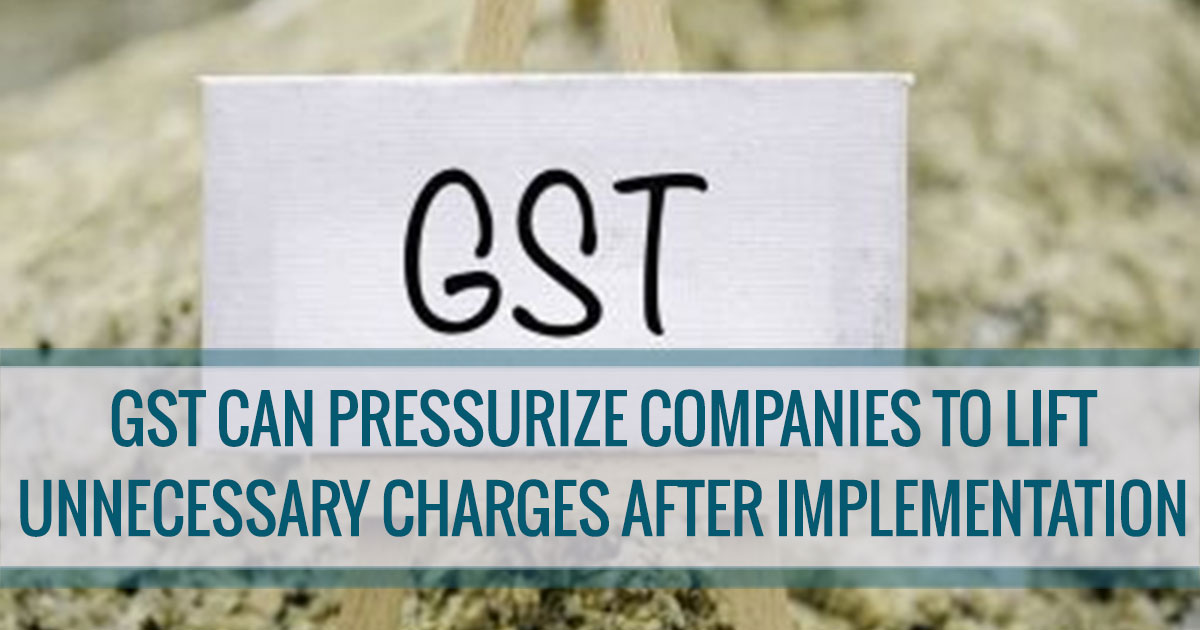
The onset of GST might bring a happy face on the consumer of Indian community as the latest draft bill will be issuing a new provision which states an anti-profiteering clause. This clause depicts that the India Inc fraternity will be reducing the prices of the commodities which will get the benefit under the GST regime arriving early 2017.
A separate entity will be created under the GST regime which will enforce this act and will monitor the operational companies and their financial transactions to ensure that they are not hoarding extra cash on the basis of input tax credits or lower rates. All this information has been found on the draft law which has been circulated to the state governments for them considers every regulation goes well accordingly.
The draft signifies that, “The central government may by law constitute an authority, or entrust an existing authority constituted under any law, to examine whether input tax credits availed by any registered taxable person or the reduction in the price on account of any reduction in the tax rate have actually resulted in a commensurate reduction in price of the said goods and or services supplied by him.”
The authority has a full-fledged right to impose penalties over the abnormalities found in the investigation as the provision was first surfaced on September 19 meeting of the council. The draft law would be taken for the consideration at a meeting of GST council while the meeting was postponed for draft issues going to held on December 2-3.
The GST structure has four rates – 5%, 12%, 18% and 28%. The compelling expense occurrence will fall when makers get consistent information impose credit and the falling of duties is evacuated. Numerous shopper durables could see the viable expense decay by a couple rate focuses. There has been some anxiety among policymakers about organizations engrossing the tax breaks and not passing them on to buyers.
The enabled board of trustees of state back priests had raised this issue at a meeting with the business on GST some time prior. Organizations and enterprises have been known to take charge unnecessary tax benefit even after the decreased ratio.
Pratik Jain, a partner with PwC India, told that “It was seen when VAT was introduced… It is observed when tax cuts are introduced in the official. Companies usually raise prices before the budget and then reduce it marginally if a tax is cut, without passing on the actual benefit to consumers. Some experts are not enthused by the idea.”
“While the idea is to protect the consumers, considering the practical challenges on implementation, it might be counterproductive. It could lead to complex paperwork and unwarranted litigation. The experience in Malaysia on a similar provision has also not been encouraging.” he added.
